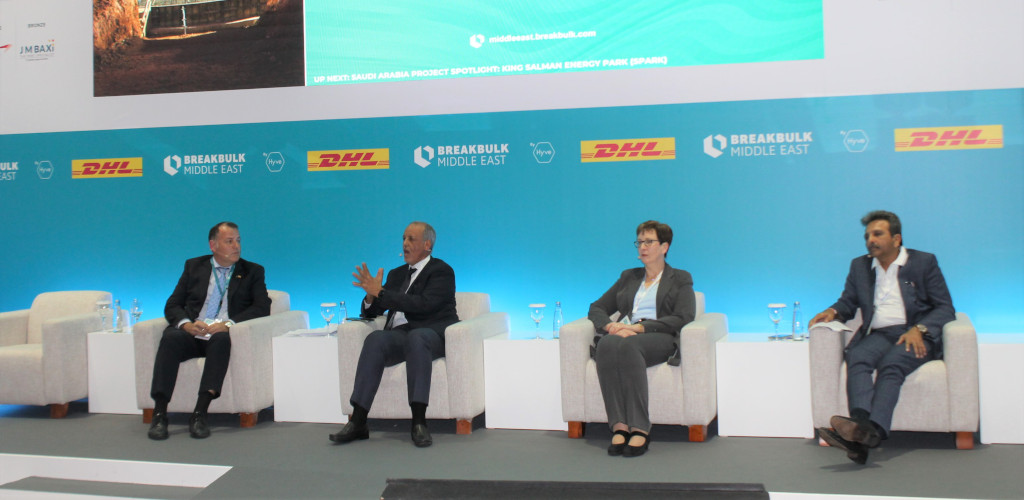Expert Panel Offers Sound Advice for Doing Business on the Continent
 By Liesl Venter
By Liesl Venter
While global economic activity remains constrained, real GDP growth of 3.7 percent is projected in Africa this year, with ongoing and upcoming projects estimated to be worth more than US$2 trillion.
Speaking on the Africa as a Region of Opportunity: Outlook, Projects and Entering the Market panel session at Breakbulk Middle East, Ashish Sheth, chairman and managing director at Sarjak Container Lines, said: “Africa will recover in 2023 onwards. The focus will be on diversifying economies, public-private partnership projects and developing new infrastructure to meet the needs of its fast-growing population.”
“Developing infrastructure has been a focus of many governments. At present, there are over 570 construction projects in Africa worth US$450 billion. Energy projects are estimated to be worth more than US$370 billion followed by transport projects, which include roads, airports and railways at US$280 billion.”
Also on the panel, Christina Prieser, associate partner of Hamburg Port Consulting, or HPC, stressed that companies should still do their due diligence when investing in Africa.
“You must know and understand your market in Africa,” she told listeners. “It is also essential to ensure you have up-to-date information at hand, understand the prospects of the market you are investing in and what developments are for the future.”
Local reputable partners were another prerequisite for successful investment on the continent, said Mohamed Abdellahi Yaha, chief executive of Mauritania-based Maurilog.
“Africa offers massive opportunity, but it is a large continent consisting of 54 countries each with its jurisdictions, rules and regulations. You need to have a clear understanding of the market you are entering, not taking any shortcuts.”
Investments should also be geared towards the long term, said Sheth.
“Africa has for the longest time been seen as a difficult environment to do business in, but this is changing. The African Continental Free Trade Area – the world’s biggest free trade area that encompasses 54 of Africa’s 55 countries – went live in 2021 and can be an economic game changer.”
Prieser said the cost of logistics on the continent remained a major challenge: “Connections to the hinterland are still limited. It is essential to focus on improving connections between countries keeping the entire supply chain in mind when creating solutions.”
She said private sector investment in the ports sector was on the increase with more privatization of terminals taking place.
Rafael Vicens, head of global projects and industry solutions for the MEA region at DB Schenker Middle East, highlighted that while Africa was not without risk, the time to enter the market was now: “I would not want to encourage anyone to jump into a pool without water, but if you do not move into Africa quickly, you are going to lose on a major opportunity.”
